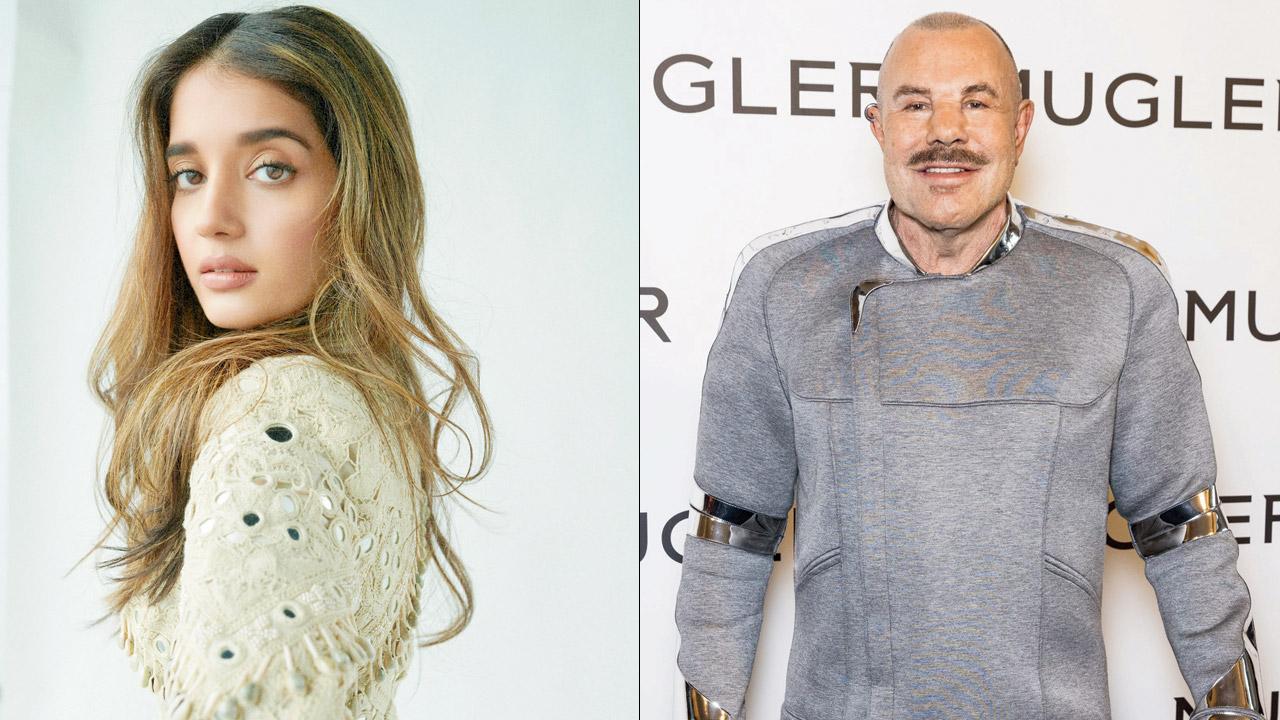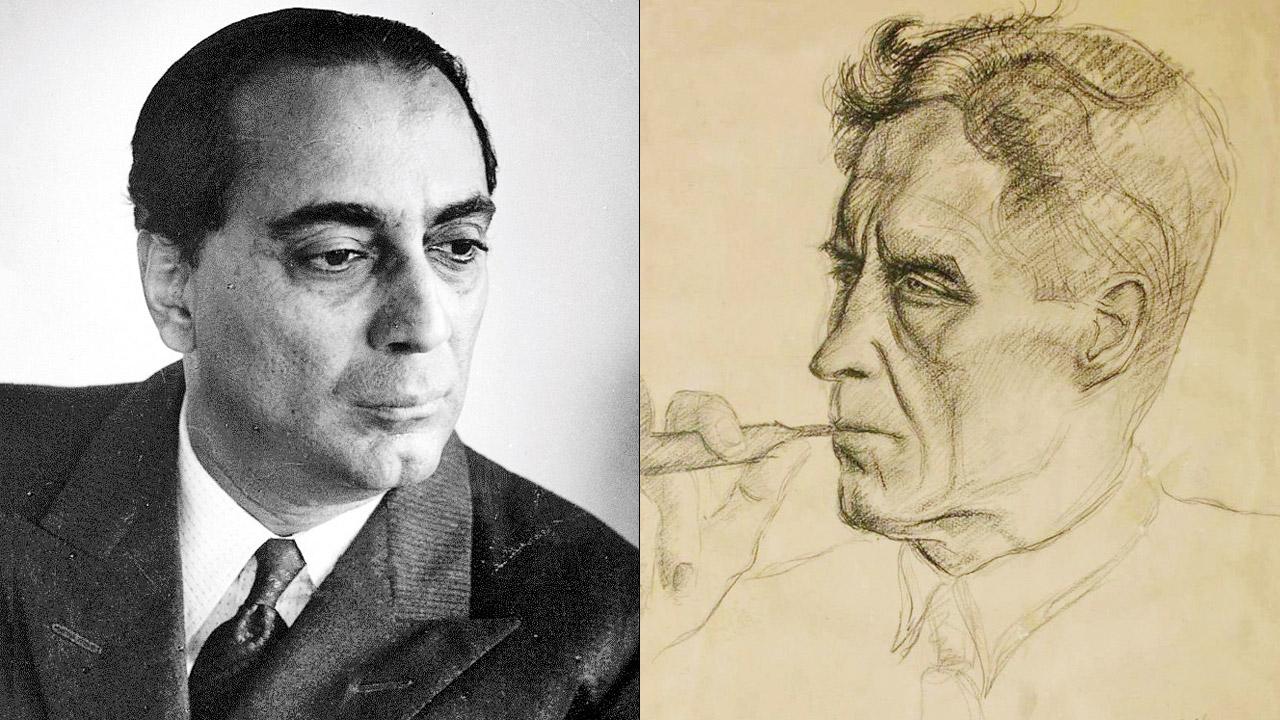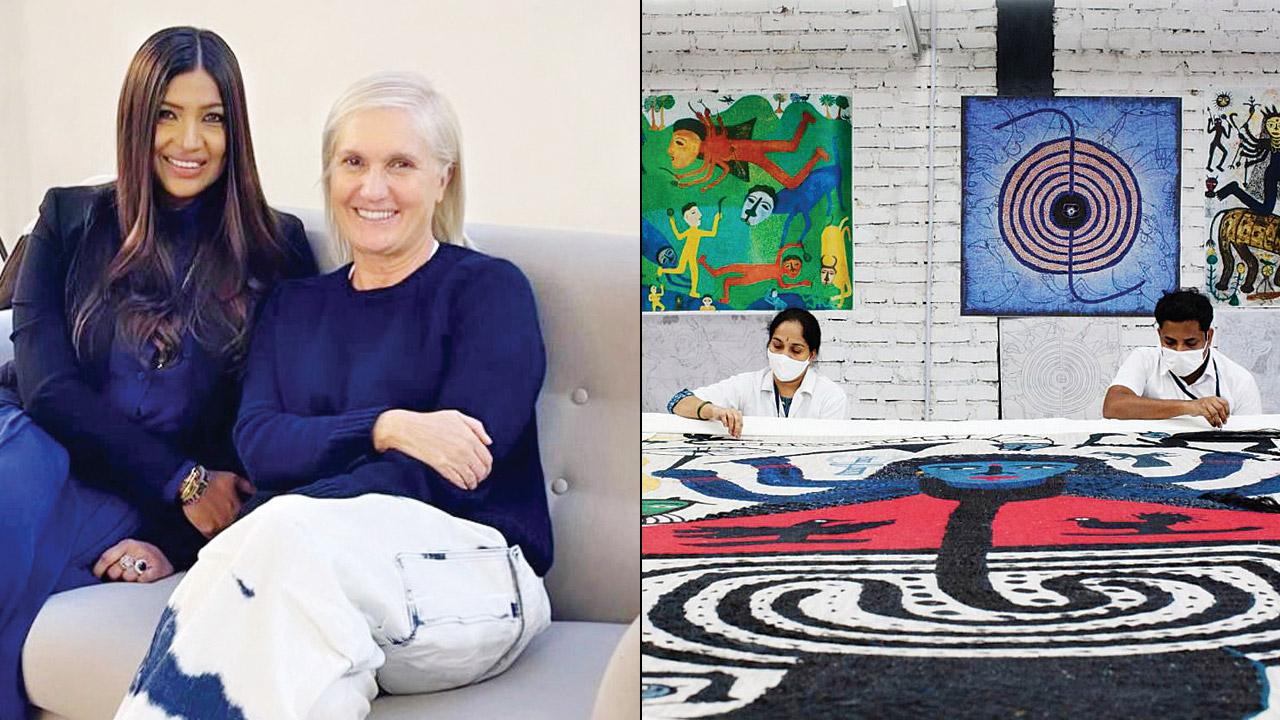The city - sliced, diced and served with a dash of sauce

Pic/Atul Kamble
Look neigh further
ADVERTISEMENT
A Mumbai police personnel and his mount share a moment ahead of the Republic Day parade at Shivaji Park
To Thierry

Arpita Mehta and Manfred Thierry Mugler. Pic/Getty Images
If you’ve ever grooved to George Michael’s Too funky music video or marvelled at Kim Kardashian’s ‘dripping wet’ look from the 2019 Met Gala, you’ve witnessed the legendary designer Manfred Thierry Mugler at work. Mugler, who was hailed for his avant-garde and hyper-feminine approach to haute couture, died in Paris on January 23, at the age of 73. Among his other laurels, Mugler is remembered for being one of the first designers to champion diversity and feature non-traditional models in his shows, including drag queens and transgender women. “Thierry Mugler was the kind of designer we studied in the history of fashion in college. He was iconic, a visionary and an inspiration to all younger designers. His designs were bold, sexy and provocative — something I took to instantly,” said Mumbai-based fashion designer Arpita Mehta, who has worked with the likes of Alia Bhatt and Katrina Kaif.
Remembering Homi, the artist

Homi J. Bhabha. Pic/Wikimedia Commons, Bhabha’s portrait of Patrick Blackett. Pic courtesy/JNAF
Did you know that nuclear physicist Homi J Bhabha was also an artist who took lessons from Jehangir Lalkaka? On his death anniversary, Jehangir Nicholson Art Foundation (JNAF) shared a portrait of Nobel Laureate nuclear physicist Patrick Blackett, by Bhabha, from their collection. Puja Vaish, its director, said that it was Bhabha’s integrated vision for science and the visual arts that led the Tata Institute of Fundamental Research to become the only Indian scientific research institute with a rare art collection.
India at the heart of Dior show

Karishma Swali of Chanakya with Maria Grazia Chiuri, creative director of Dior women’s collections; the French luxury house collaborated with Mumbai’s Chanakya School of Craft
India made quite the entrance at the Dior haute couture 2022 show held on Monday in the gardens of Musée Rodin, Paris. The French luxury house collaborated with Mumbai’s Chanakya School of Craft (CSC) for the commission of a series of artworks by award-winning Indian artists Madhvi and Manu Parekh. Their artworks were scaled and rendered into embroidered tapestries at CSC. It took a little over three months for 320 master artisans to hand-embroider 340 sq m (approximately 3,500 sq ft) artworks. “The challenge of interpreting their work was thrilling, and we went about the fabrication in a very spontaneous way — allowing the vivid lines and forms of the artists to lead the way,” Karishma Swali, CSC’s creative director, shared in a media brief. Textile art has long been a vehicle of storytelling. The show’s vast, almost hypnotic tapestries sat at the intersection of craft, theatre and fashion, and will be open to the public until January 30. The 22 artworks are an upshot of the cohesive approach that married Madhvi Parekh’s cultural stories of femininity, folk art and village craft, and Manu Parekh’s hybrid format of modernism and abstraction.
Inspiration or appropriation?

The Tiffany & Co. design on Pharrell; the Mughal design. Pics/Instagram; (right) Nivedita Poddar
When singer Pharrell Williams attended Nigo’s Kenzo show in Paris, most of the attention was directed at his diamond-encrusted sunglasses. The glasses are evident copies of a 17th century Mughal artefact that went on auction at Sotheby’s last year. The same was pointed out by several netizens, who decried both Pharrell and the designer for their failure to credit their inspiration. “It is a shocking instance of cultural appropriation and of Western fashion houses borrowing heavily and almost unilaterally from marginalised communities,” observed Nivedita Poddar, founder of Art Fervour.
 Subscribe today by clicking the link and stay updated with the latest news!" Click here!
Subscribe today by clicking the link and stay updated with the latest news!" Click here!







